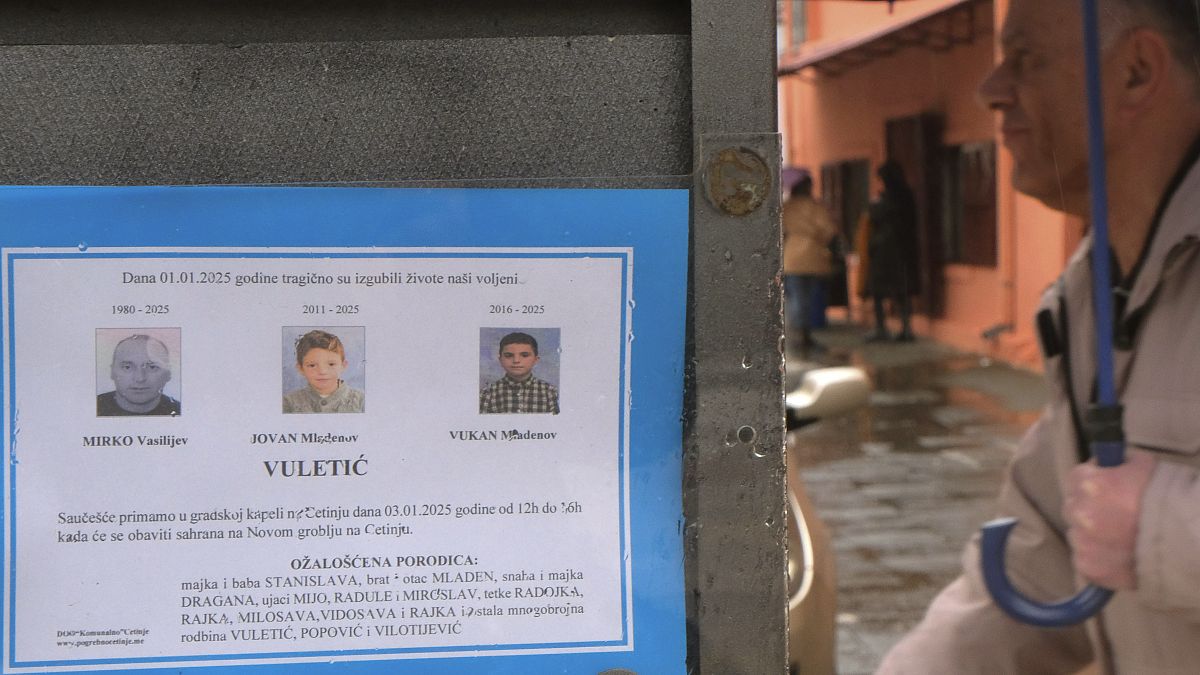Montenegro is facing a crisis in the number of illegal weapons per capita, ranking sixth in the world according to state television broadcaster RTCG. The recent tragic shooting incident in the town of Cetinje, where a gunman killed 12 people, has prompted urgent action from the country’s National Security Council. With a population of 620,000, Montenegro has a deeply-rooted gun culture that has fueled concerns about the level of violence in society. The gunman used an illegal 9mm gun in the shooting rampage, highlighting the need for stricter gun laws and better enforcement of existing regulations.
The 45-year-old gunman, Aco Martinović, opened fire in Cetinje after a bar brawl, resulting in the deaths of seven men, three women, and two children. Four others were seriously wounded in the attack. Police found 37 casings at the scene along with additional ammunition in Martinović’s possession. The incident has been described as one of the biggest tragedies in Montenegro’s history, raising questions about the capacity of state institutions to address issues such as gun ownership. Many citizens are demanding answers and accountability from authorities, with protests held in Podgorica calling for the resignation of top security officials.
The Cetinje massacre is not the first incident of its kind in Montenegro, with a similar attack in 2022 claiming the lives of 10 people, including children. The shootings have prompted human rights and advocacy groups to call for an investigation into the security system’s readiness to prevent such tragedies. While police claim that Martinović’s actions were unplanned and impossible to predict, his history of violent behavior and illegal weapons possession raises concerns about the effectiveness of law enforcement in addressing potential threats. The community is left mourning the loss of innocent lives and demanding accountability from those responsible for ensuring public safety.
In the aftermath of the shooting, the Montenegrin population has come together to honor the victims and reflect on the tragedy. Hundreds of individuals participated in candlelight vigils, expressing their grief and calling for a more robust response from authorities to prevent future incidents. The sense of shock and loss has underscored the need for a collective effort to address the root causes of violence in Montenegrin society. The tragedy has prompted soul-searching among citizens, questioning the state’s ability to protect its people and prevent senseless acts of violence. The public outcry has highlighted the urgency for legislative reforms and enhanced law enforcement measures to tackle the proliferation of illegal weapons.
As the investigation into the Cetinje massacre unfolds, the focus remains on understanding how such a tragedy could have occurred and what steps can be taken to prevent similar incidents in the future. The families of the victims, along with advocacy groups, are calling for accountability and transparency from authorities to ensure that justice is served. The government’s response to the shooting will be critical in rebuilding public trust and addressing the underlying issues that contribute to violence in Montenegro. The path forward requires a comprehensive approach that addresses both the availability of illegal weapons and the enforcement of gun laws to safeguard the well-being of all citizens.










